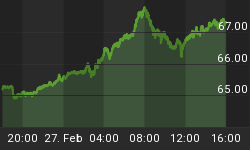Russia—one of the key supporters of Nicolas Maduro in the Venezuelan crisis—has stood by the Venezuelan leader for years and has poured billions of U.S. dollars in the Latin American country in the form of loans and oil investments, even when all other Venezuelan allies—including China—have shown reluctance to continue lending money to Maduro’s regime.
At the beginning of the political crisis in Venezuela last month, Russia’s President Vladimir Putin held a telephone conversation with Maduro to express support for him as the legitimate president and to denounce that “destructive external interference is a gross violation of the fundamental norms of international law.”
Putin spokesman Dmitry Peskov said a few days later that Russia would defend its interests in Venezuela, including oil interests, within the international law using “all mechanisms available to us.”
Russian officials have not made public statements on Venezuela since late January.
Moscow continues to back Maduro, but is acutely aware that time is not on Maduro’s side and he stands to lose some support amid the excruciating economic collapse in the country, Bloomberg reports, quoting two unnamed sources close to the Kremlin.
The situation in Venezuela “increasingly worries us”, Dmitry Shugaev, the head of the Federal Service for Military-Technical Cooperation, told Russian daily Kommersant on Wednesday but noted that Moscow “is not inclined to curtail cooperation” with Venezuela.
Russia has an arms deal with Maduro’s regime, and it has helped the ruler with sovereign loans and loans from Russian oil giant Rosneft to Venezuelan state oil firm PDVSA in exchange for crude oil supplies.
At the end of 2017, Russia agreed to a deal with Venezuela to restructure US$3.15 billion of Venezuelan debt, under which Caracas would be repaying the debt over the next ten years, of which the first six years include “minimal payments”. Related: Tech Giants Lead Renewable Push
Rosneft’s exposure is US$2.3 billion in debt yet to collect from PDVSA, and stakes in five oil joint ventures in the Latin American country estimated to be worth between US$2.5 billion and US$3.5 billion.
Maduro’s chances to cling to power are diminishing, according to Russian experts on Venezuela briefed by Bloomberg. Russia, for its part, can’t risk a major confrontation with the United States in Venezuela, Ivan Konovalov, director of the Center for Strategic Trend Studies in Moscow, told Bloomberg.
Oil interests aside, the importance of Venezuela for Russia is that it has been a staunch ally of Moscow in Latin America, a region traditionally viewed as Washington’s backyard.
For Venezuela’s Maduro, Russian support is crucial.
“Without the continued support of Russia, China, and Cuba, it is unlikely President Nicolas Maduro’s government will last for long,” Rocio Cara Labrador wrote in an article in Council on Foreign Relations (CFR) this week.
If Maduro were removed from office, Russia risks losing some of the money it has poured in Venezuela.
Yet, even in case of a political transition, Venezuela’s debt restructuring “is likely to be a lengthy process,” Fitch Ratings said in a commentary on Venezuela’s debt prospects on Wednesday.
“The nature of numerous classes of creditors including sovereign and PDVSA bondholders, bilateral lenders (especially China and Russia), multilaterals and private creditors will prove to be additional obstacles for a successful debt restructuring,” Fitch added, noting that PDVSA would need to be restructured “from the ground up and incentives put in place for private investment.”
Amid the ongoing political impasse, the position of Venezuela’s military will be “key to the country’s political future and there is the potential for a protracted stalemate and deepening of positions,” Fitch noted.
By Tsvetana Paraskova for Oilprice.com
















